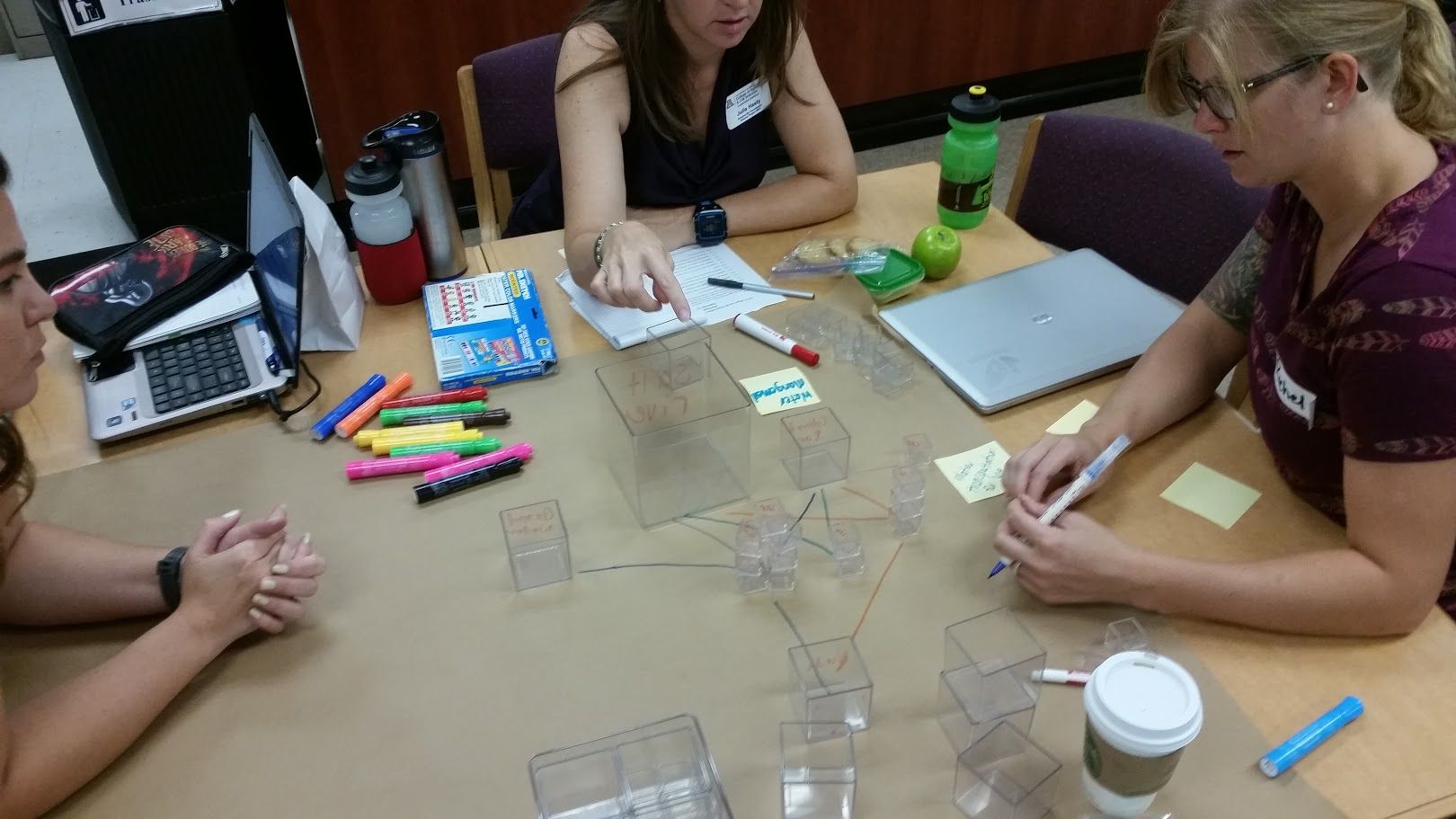Systems Thinking & A Water Ethic
 Jeremy Solin
·
2 minute read
Jeremy Solin
·
2 minute read
Image credit [1]
This entry is part of our everydayST series. Learn more about the everydayST tag.
I recently posted a link on the ThinkWater Facebook page to a public radio program of a panel of speakers discussing a water ethic. The conversation got me thinking about systems thinking; particularly the parts and wholes of a water ethic System. And, once I identified (made distinctions) the parts and wholes of a system, it was only natural to explore the Relationships between those parts and between systems. Furthermore, I had to examine the perspective from which I was viewing the system. (Distinctions, Systems, Relationships and Perspectives, or DSRP, are the four rules or patterns underlying systems thinking.) This blog is a brief summary of my thinking about systems thinking triggered by the panel discussion.
Each of the three panelists adopted a particular perspective, relating a water ethic to Aldo Leopold's famous land ethic. Panelist Curt Meine explored the relationship in depth, explaining how a water ethic was part of an overall land ethic and brought particular focus to water. Leopold's definition of "the land" included the soil, water, people, wildlife, and other living organisms (making a part-whole system). Therefore, the land ethic includes an ethical relationship with all of those aspects of the land. A water ethic, then, is part of the whole of a land ethic. And, the parts of a water ethic system can be identified as ethical relationships with lakes, ocean, groundwater, etc. The land ethic, in turn, is a part of the whole of a broader societal ethic, which also includes an ethic of caring for those in need, an ethic of caring for pets, an ethic of honoring private property (not stealing), etc.
Exploring the parts and wholes of the water ethic helped me to understand the relationships between these ethics. Would we even be talking about a water ethic had Leopold not developed and shared his ideas about a land ethic in the 1940s? Perhaps not. And, it seems to me that the development of a land and water ethic is a natural progression of human ethics generally. Even though some societies have always had an ethical relationship with the rest of the natural world, this is a recent development in Western society and builds on earlier ethical advances.
The exploration of parts and wholes also got me to reflect on my experiences and relationships with water. This reminded me of how important certain places (like the lakes and streams I’ve fished in) are to me and of how much we depend on water for so much in our lives, which solidified my water ethic.
As an educator, the identification of the parts and wholes of a water ethic also helped me to think about the affective connections and understanding that people need to develop before a water ethic can become broadly held--at a minimum we’ll need to reflect on and explore the personal importance of water, we’ll need to understand where our water comes from, we’ll need to understand the water challenges and opportunities we face as a society, and we’ll need to appreciate the essential importance of water to all of us now and in the future.
The four rules underlying systems thinking--distinctions, systems, relationships, and perspectives--can help us here, too. That is because these DSRP rules have ethical implications, as addressed in Chapter 10 of Systems Thinking Made Simple and in the article "A Unifying Theory of Systems Thinking with Psychosocial Applications" in the latest issue of Systems Research and Behavioral Science. My colleague Erin explored some of the ethical implication of the perspectives rule in an earlier blog on perspective-taking.
We at ThinkWater are working to build a nation of Water Thinkers who have a water ethic. We provide resources and programs that help educators and researchers become more effective by integrating systems thinking into their work and programs. You can learn more on the ThinkWater website and find out how you can get involved here.
.png?width=150&height=150&name=CRL%20GOAT%20Logo%20(4).png)


